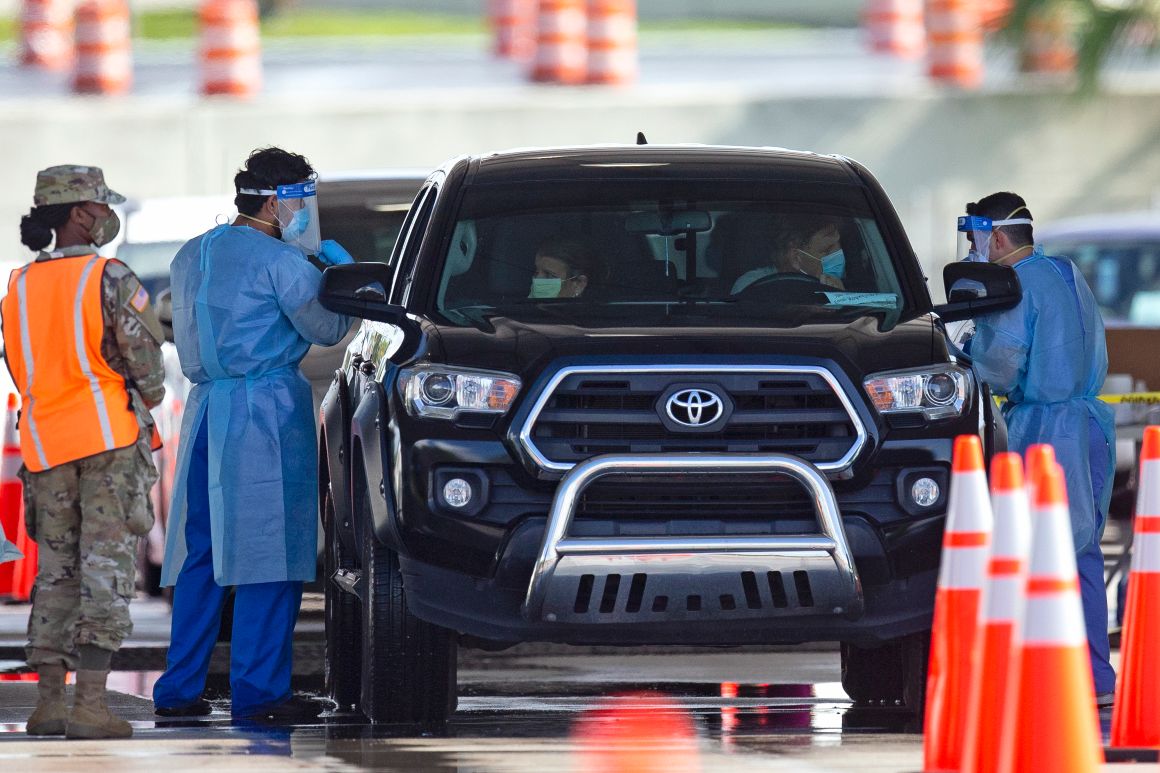
Congress looks unable to protect patients from "surprise" medical bills before the election, despite a push from key health committee chairs and the Trump administration to include a fix in a new coronavirus relief package.
Senate Republicans are expected to unveil a skinny package of rescue measures this week that will largely skirt contentious health issues but include protections for hospitals from lawsuits over coronavirus exposure and possibly money for Covid-19 testing that private insurers won’t cover.
"Surprise" billing protections — once thought to be a bipartisan rallying point, and an increasing concern of patient advocates during the pandemic — appear as stuck as ever, with powerful health industry interests gridlocked.
A senior Democratic aide said House Democrats spent the last month trying to patch up intraparty differences over how to shield patients from sometimes staggering out-of-network charges — typically from specialty or emergency physicians. But potential friction points remain, and Democrats say Senate Majority Leader Mitch McConnell is opposed to wrapping the reforms into the stimulus. McConnell’s office declined to comment.
The White House has also floated a proposal to simply ban surprise billing and leave it to health plans and providers to negotiate a solution. But physician groups who wield significant influence in Congress think the plan would give insurers too much leverage. Private equity-backed doctors staffing firms helped tank leading billing reforms last year from House Energy and Commerce and Senate HELP leaders after an intense lobbying and advertising blitz.
Lobbyists and patient advocates who back a billing fix still hope McConnell will yield, noting the White House involvement and that the issue is a priority of his friend Lamar Alexander (R-Tenn.), the chairman of the HELP Committee, who’s retiring this year.
“Every honest person in this town knows it’s the last train leaving the station and if surprise billing doesn’t get done in the next three weeks, Congress has given up and let down patients all over the country,” said James Gelfand, a lobbyist for the ERISA Industry Committee representing large employers.
Beyond McConnell, another key lawmaker yet to show his cards during the pandemic is House Ways and Means Chair Richard Neal (D-Mass.), who has pushed for a more doctor- and hospital-friendly proposal that backers of the Energy and Commerce and HELP Committee plan say would drive up prices and then insurance premiums.
Neal, a 30-year veteran of Congress, is facing a tough primary challenge from progressive Alex Morse, the mayor of Holyoke, Mass., who has showcased the issue since Neal weighed in and blocked Congress from passing reforms late last year. A new progressive group called Fight Corporate Monopolies is spending $300,000 on ads to portray Neal as captive to private equity interests that profit from surprise medical bills.
Health experts think lawmakers may ultimately be wary of crossing hospitals and doctors during a pandemic that’s taking a significant toll on their finances and punt the issue to next year.
Senate Republicans do want to invest more money in Covid-19 testing — although the White House is resisting the pitch to add an extra $25 billion, saying the CDC still has unspent funds from earlier relief packages. Democrats charge the move is another administration attempt to conceal spiking case numbers across the country.
The government has relied on private insurance to fund most of the country’s testing. But as supply shortages mount and testing turnaround times lag, the Trump administration is letting private health plans off the hook from paying for back-to-work or public health surveillance diagnostics, without announcing an alternative funding strategy.
Health plans are urging Congress to fill in the gap with public funding. But the administration maintains that nearly $13 billion of the last $25 billion set aside for testing hasn’t yet been spent. A senior administration official also said states, municipalities and tribes have spent less than $100 million of the $10 billion they’ve received from the feds.
Meanwhile, public health groups say health departments across the country are in need of more resources as cases are rising in nearly every state.
“The stakeholder community is 100 percent opposed to this kind of thinking,” said Adriane Casalotti, chief of government and public affairs for the National Association of County and City Health Officials. ”We’re in this pandemic for the long haul. All levels of the government’s public health response need more investments.”
The GOP rescue package also isn’t expected to address several other costly and closely watched heath issues: increased funding for Medicaid or private insurance subsidies for newly jobless Americans who’ve lost their workplace health plans.
Congressional Democrats and governors have pushed for another increase in the federal portion of Medicaid spending after Congress gave states a temporary 6 percent boost in March. States facing budget shortfalls warn they’ll have to cut benefits without more federal help,
Brianna Ehley contributed to this report.
Source: politico.com
See more here: news365.stream






